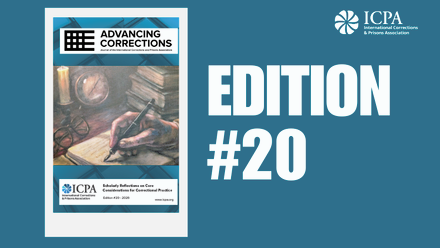Advancing Corrections Journal - Edition #18 - What Is Working With Women: Correctional Practice in the Post Bangkok Rules Era (ACJ18-A012)
Abstract
Historically evidence-based programmes in corrections have been developed to address the needs of males, who comprise the majority of the inmate population. However, many studies have identified significant differences between women and male offenders and their implications in criminal offending. Today there is general consensus that the criminogenic factors for justice involved women are distinct from those of men. Consequently, this has led to the development of gender specific programmes for women. Western correctional jurisdictions have designed and implemented a number of these gender specific programmes that recognise women's unique pathways into crime. Unfortunately, the same has not been the case in most African correctional jurisdictions. The Namibian Correctional Service (NCS) stands out as one of the few correctional jurisdictions within Africa that have introduced a gender-specific programme for women. The programme which is titled simply, "A Women's Programme", was adopted from Canada. The programme is consistent with the risk-needs- responsivity principle which underpins the Namibian Correctional Service rehabilitation framework. The programme is delivered to higher risk women, it appropriately addresses some of the unique criminogenic needs of justice involved women and it was designed in content and style of delivery to engage women. This paper highlights how a western developed evidence-based programme can be realistically implemented in the African context. In addition, the paper discusses some innovative strategies employed by the consultants in designing the programme and adopted by programme officers from the NCS in its implementation, to ensure that the programme would be relatable to the Namibian women offender population. An informal evaluation of a pilot implementation of the programme revealed that participants perceived it as promoting their self-efficacy and empowerment. Participants further stated that the programme increased insight into themselves, their past traumas, their crimes, and their relationships, leading to greater self-awareness and a sense of hope for the future.
Please log in to download the full article. Access is available exclusively to ICPA Full, Staff, and Professional Members.

